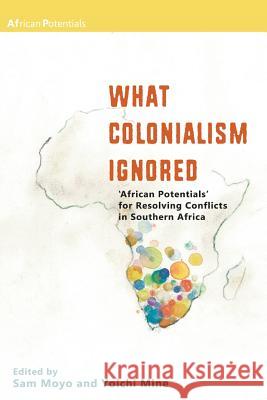What Colonialism Ignored. 'African Potentials' for Resolving Conflicts in Southern Africa » książka
What Colonialism Ignored. 'African Potentials' for Resolving Conflicts in Southern Africa
ISBN-13: 9789956763399 / Angielski / Miękka / 2016 / 388 str.
As Julius Nyerere once noted, Africa has largely been the continent of peace, though this fact has not been widely publicised. In reality, Africa possesses dynamic potentials for resolving contradictions and violent ruptures that colonial authorities, post-colonial states and global actors have failed to capture and capitalise upon. Drawing on the everyday experience of rural and urban people in Zimbabwe, South Africa, Namibia and Zambia, this book brings into conversation leading Japanese scholars of Southern Africa with their African colleagues. The result is an exploration in comparative perspective of the fascinating richness of bottom-up 'African potentials' for conflict resolution in Southern Africa, a region burdened with the legacy of settler capitalism and contemporary neoliberalism. The book is a pacesetter on how to think and research Africa in fruitful collaboration and with an ear to the nuances and complexities of the dynamic and lived realities of Africans.
As Julius Nyerere once noted, Africa has largely been the continent of peace, though this fact has not been widely publicised. In reality, Africa possesses dynamic potentials for resolving contradictions and violent ruptures that colonial authorities, post-colonial states and global actors have failed to capture and capitalise upon. Drawing on the everyday experience of rural and urban people in Zimbabwe, South Africa, Namibia and Zambia, this book brings into conversation leading Japanese scholars of Southern Africa with their African colleagues. The result is an exploration in comparative perspective of the fascinating richness of bottom-up African potentials for conflict resolution in Southern Africa, a region burdened with the legacy of settler capitalism and contemporary neoliberalism. The book is a pacesetter on how to think and research Africa in fruitful collaboration and with an ear to the nuances and complexities of the dynamic and lived realities of Africans.











